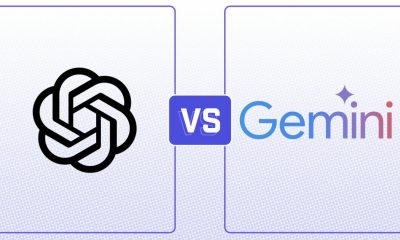Finance
Ronaldo’s arrival may mean Juventus has to sell Dybala or Higuaín


Cristiano Ronaldo.
Reuters
-
Cristiano Ronaldo’s move from Real Madrid to Juventus
is the soccer signing of the summer. -
However, renowned auditor KPMG claims Juventus will now
have to sell at least one of its big-name players to remain
compliant with UEFA Financial Fair Play Regulations. -
Juventus also has to increase its operating revenues in
the seasons ahead in order to justify the blockbuster
deal. -
However, Ronaldo performs at such a high level that
Juventus now has a greater chance of winning the UEFA Champions
League, a tournament Ronaldo has won five times. -
Read Business Insider’s coverage
for the 2018-2019 soccer season here.
Cristiano Ronaldo’s arrival at Juventus has been the signing of
the summer, but the Serie A club may have to sell one of its best
players to ensure it remains compliant with UEFA’s financial fair
play regulations.
Juventus paid Real Madrid $130 million to buy Ronaldo and
the deal had an immediate impact,
as the club’s stock price popped almost 40%, its social media
portals attracted millions of new
followers, and the club sold 520,000 Ronaldo
jerseys (approximately $62.4 million in revenue) in 24 hours.
When Ronaldo, a 33-year-old athlete, completed his medical
evaluation at the club, Juventus discovered something
extraordinary — he apparently had the fitness of a
20-year-old player as he had below average body fat, above
average muscle mass, and could record incredible sprint speeds.
All of the news appeared positive — not only had Juventus
completed a blockbuster deal, it may have got tremendous value
for money, too.
However, renowned auditor KPMG believes the $130 million
signing may come at a cost. This is because Juventus may have
to sell a key asset like experienced striker Gonzalo Higuaín or
young forward Paulo Dybala in order to remain on the right side
of UEFA regulations.
In a 20-page document called “Ronaldo Economics,” KPMG
reports that “Juventus needs to abide by specific rules” to be
“compliant with UEFA Regulations.”
It said: “One of the most stringent ones is the ‘break-even’
rule, which requires them to report a maximum accumulated loss of
€30 million over the course of the three latest financial years.”
Ronaldo’s transfer is a “heavy burden” to that rule.
What this means is simple. After buying Ronaldo, Juventus must
now sell at least one of its big-name players.
“The arrival of Ronaldo in Turin might imply the disposal of one
or more players by Juventus, providing an immediate source of
funding,” KPMG said.
It listed six players that could generate a large “potential
selling price.”
 KPMG
KPMG
As you can see in the table above, the player with the biggest
selling price is Paulo Dybala — the club’s top-performing player
in the 2017-2018 season, according to soccer statistic website
Whoscored.com.
KPMG believes Dybala has a transfer value of €105 million to €120
million and, at that price, the player would likely have no
shortage of admirers as he has been linked with Bundesliga giant
Bayern Munich and Premier League club Liverpool
FC.
However, at 24, Dybala is a player Juventus can build around for
years to come, so the club could be loathe to lose him to a
European rival — especially at a time when it is planning to win
the UEFA Champions League title.

Gonzalo Higuaín,
Mario Mandžukić, and Paulo Dybala.
Getty Images
Instead, Juventus may prefer ratifying sales for players over 30
years old — their transfer value will only decrease, so it may be
preferable to cash in now while Juventus can still generate a
decent fee and satisfy UEFA regulations.
Mario Mandžukić scored just five goals in 27 starts for Juventus
last season, but the 32-year-old excelled at the 2018 FIFA World
Cup with Croatia and his performance level has put him back into
the spotlight.
Mandžukić is not essential to future Juventus success and, with
KPMG valuing him at €20 million to €25 million, he could be free to join
Manchester United.
Experienced striker Gonzalo Higuaín could also be on the chopping
block. Higuaín was the second-highest goalscorer at Juventus last
season, netting 16 times in 32 starts in all competitions. But at
30 years old, and with Dybala and now Ronaldo ahead of him in the
starting line-up, he may be surplus to requirements.
KPMG foresees a €60 million to €70 million transfer fee for
Higuaín, should Juventus decide to sell. And the player has already generated
interest from Premier League club Chelsea.
Is that all Juventus has to do?
No. Not at all. Selling one of its top players is the easy part.
The hard part is what happens over the next two to three seasons,
because Juventus must “increase its operating revenues” to
justify the extravagant Ronaldo purchase.
KPMG estimates that season ticket prices for the forthcoming
seasons could increase by 30%, which would generate €33 million
to €34 million. Juventus could also generate increased revenue
from broadcasting (there will be more eyes on the club now it has
the planet’s most recognisable soccer player), and sponsorship
(blue-chip clients would also, in theory, be lining up to talk to
Juventus now it has Ronaldo).
Now here comes the fun part.
Yes. As KPMG notes, “securing Ronaldo’s performance increases the
chances of winning on the pitch” — and that could mean the
difference between Champions League success and Champions League
failure.
As Ronaldo has won the competition five times, a sixth may not be
out of the equation, and that would mean even more cash, even
more broadcasting revenue, and even more sponsorship for Juventus
in the very near future.
-

 Business7 days ago
Business7 days agoTesla drops prices, Meta confirms Llama 3 release, and Apple allows emulators in the App Store
-

 Business6 days ago
Business6 days agoTechCrunch Mobility: Cruise robotaxis return and Ford’s BlueCruise comes under scrutiny
-

 Business5 days ago
Business5 days agoTesla layoffs hit high performers, some departments slashed, sources say
-

 Entertainment6 days ago
Entertainment6 days ago‘The Sympathizer’ review: Park Chan-wook’s Vietnam War spy thriller is TV magic
-

 Business5 days ago
Business5 days agoMeta to close Threads in Turkey to comply with injunction prohibiting data-sharing with Instagram
-

 Business4 days ago
Business4 days agoFormer top SpaceX exec Tom Ochinero sets up new VC firm, filings reveal
-

 Entertainment4 days ago
Entertainment4 days agoChatGPT vs. Gemini: Which AI chatbot won our 5-round match?
-

 Business4 days ago
Business4 days agoTesla layoffs hit high performers, some departments slashed, sources say






















